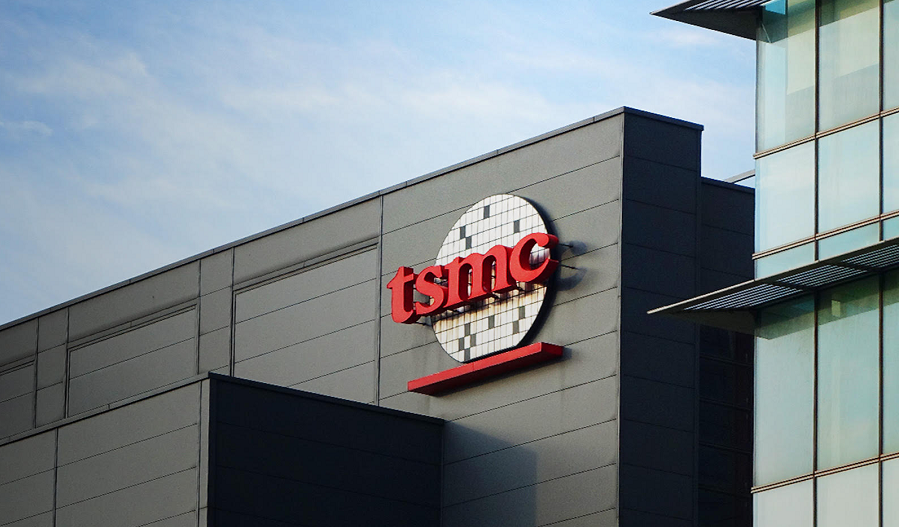 INFRA
INFRA
 INFRA
INFRA
 INFRA
INFRA
Updated:
Troubled chipmaking giant Intel Corp. is discussing a deal with its rival Taiwan Semiconductor Manufacturing Co. to create a joint venture that will take over the running of its chip fabrication plants in the U.S.
The news comes from a report in The Information that originally cited two sources saying there was a tentative agreement. Nothing has been made official, though, Intel refused to comment on the story and The Information’s updated story referenced only discussions, not a tentative agreement.
The updated story said there may be resistance within TSMC and noted that two weeks ago, TSMC board member Paul Liu publicly denied reports that the company was considering acquiring Intel’s foundry business.
According to The Information’s report, TSMC would own 20% of the joint venture. It’s not clear if Intel or some other company or companies will own the remaining 80%, but earlier this year there were multiple reports that TSMC had asked other chipmakers, including Broadcom Inc., Nvidia Corp., Qualcomm Inc. and Advanced Micro Devices Inc., to invest in the joint venture, too.
The new organization would take control of multiple chip fabs in the U.S. The companies were heavily pressured by the U.S. government into agreeing a deal, with the Department of Commerce said to be especially concerned about Intel’s struggles. The White House reportedly sees the partnership as a way to stabilize Intel, whose domestic chipmaking capabilities are seen as being essential to U.S. national security, despite the challenges faced by the company.
At this stage it’s not clear how involved TSMC will be with Intel’s U.S. chip fabs, which cost tens of billions of dollars to manufacture, but are set up to manufacture chips based on Intel’s designs only. It’s possible that, under the terms of the deal, TSMC may share some of its chip manufacturing methods with Intel and train its employees on how to implement them. If that happens, Intel’s factories may even be refitted with new equipment so they can be used to make processors based on TSMC’s methodologies.
Some Intel executives apparently fear that the partnership could result in yet more layoffs at the company, which cut more than 10,000 jobs late last year. For now, the specifics of the deal are still being discussed, and the final details remain unclear.
It’s also not clear how TSMC’s proposed stake in the Intel Foundry business align with its earlier commitment to invest $165 million in Intel’s Arizona Fab 21 site, which is designed to make chips for customers including Apple Inc.
TSMC has long been seen as a rival to Intel, but its focus on chip manufacturing rather than design, which is handled by its customers, has allowed it to outpace the industry. Its fabs in Taiwan are fitted out to build more advanced and sophisticated chips than anything Intel can build.
Meanwhile, Intel’s fabs are said to be less attractive to chip designers because its process technologies aren’t as advanced. Its chips also cost more to manufacture because its yields are generally lower, and the level of customer and technical service it provides to customers is perceived to be subpar compared with TSMC.
News of the deal will likely be welcomed by industry analysts, including theCUBE researchers Dave Vellante and David Floyer, who have long called for TSMC to take over Intel’s chip foundries in order to secure a future for advanced semiconductor manufacturing in the U.S.
Intel has struggled with declining revenue and market share for years. Under its former Chief Executive Pat Gelsinger, it aimed to become a leader in both chip design and manufacturing as part of its flawed IDM 2.0 strategy. However, it failed to achieve either goal, causing Gelsinger to be ousted from his role in December. Intel then announced a new leader in chip industry veteran Lip-Bu Tan, who took over the company last month.
In fiscal 2024, Intel reported a net loss of $18.8 billion, the first time it has lost money since 1986.
Financial markets reacted quickly to news of the joint venture, and Intel’s stock gained 7% on the report. However, investors in TSMC were less enthusiastic, and the Taiwanese chipmaker’s stock fell 6% on the news.
Support our mission to keep content open and free by engaging with theCUBE community. Join theCUBE’s Alumni Trust Network, where technology leaders connect, share intelligence and create opportunities.
Founded by tech visionaries John Furrier and Dave Vellante, SiliconANGLE Media has built a dynamic ecosystem of industry-leading digital media brands that reach 15+ million elite tech professionals. Our new proprietary theCUBE AI Video Cloud is breaking ground in audience interaction, leveraging theCUBEai.com neural network to help technology companies make data-driven decisions and stay at the forefront of industry conversations.